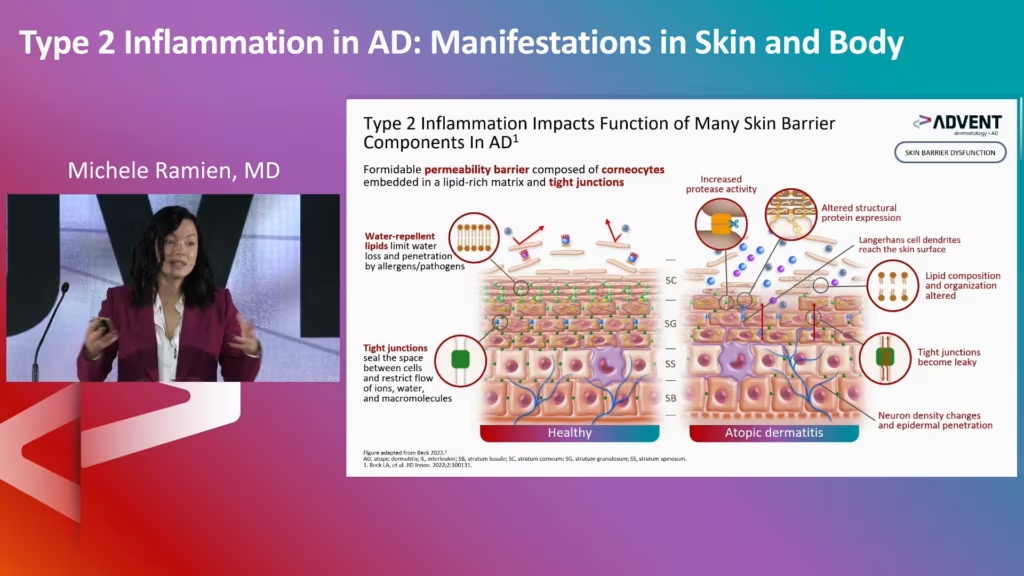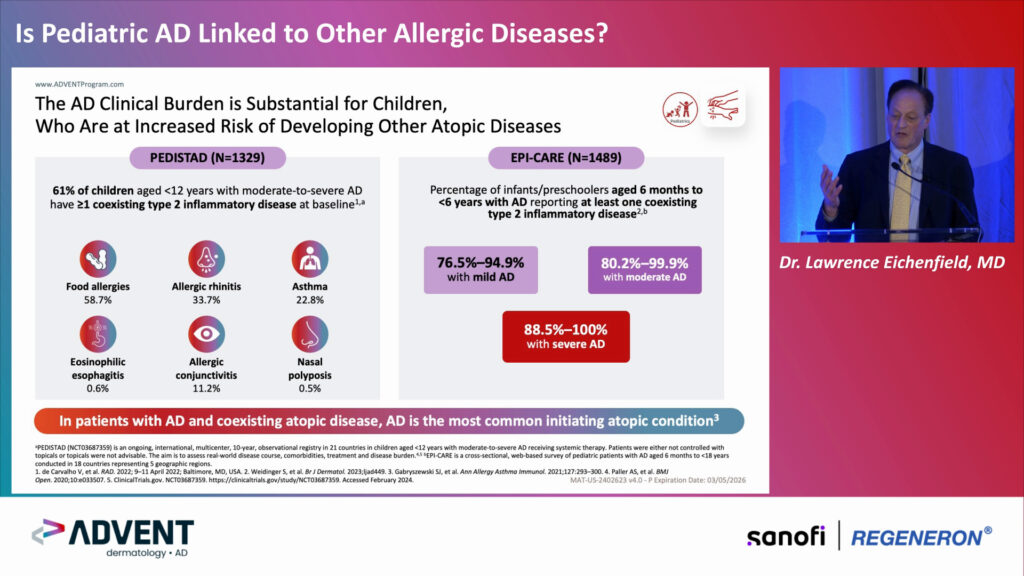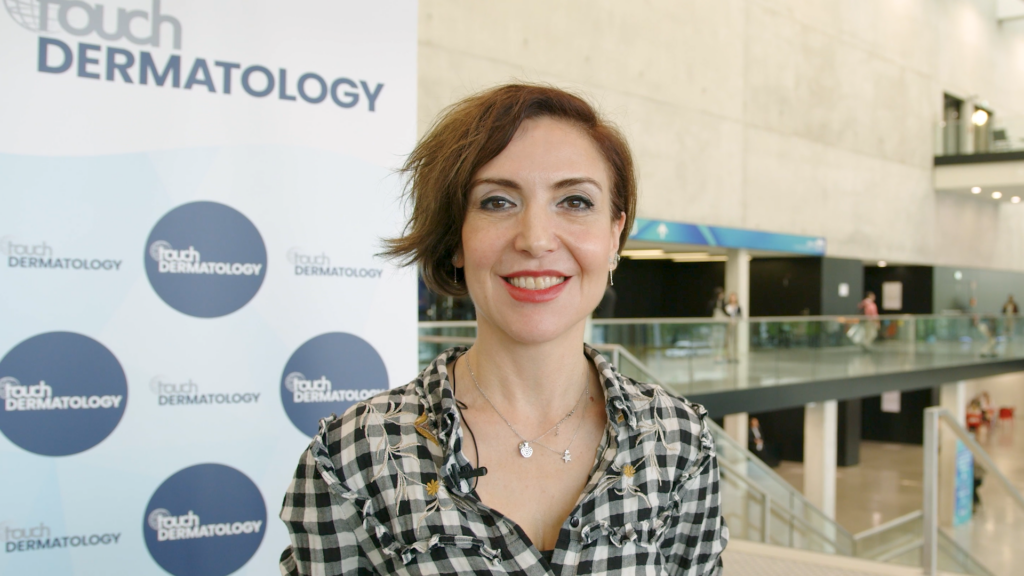Urticaria
An Introduction to Urticaria
Urticaria, commonly known as hives, is an allergic skin condition characterized by raised, itchy welts on the skin. These welts, or wheals, can vary in size and shape, often appear suddenly and may change location rapidly. Urticaria typically results from the body’s immune response releasing histamines and other chemicals in response to allergens, medications, infections or other triggers. There are two main types of urticaria: acute and chronic urticaria. Acute urticaria lasts for a short period, usually a few hours to a few days, and is often caused by specific triggers, such as certain foods, medications, insect stings or infections. Chronic urticaria can persist for more than 6 weeks. Identifying its cause can be more challenging than for acute urticaria; this type of urticaria may be linked to autoimmune factors, underlying medical conditions or other triggers. Symptoms of urticaria include itching, redness and the appearance of pale or red welts on the skin. Angioedema, which involves swelling beneath the skin, may occur in some cases. The management of urticaria involves identifying and avoiding triggers whenever possible. Antihistamines are commonly used to relieve itching and reduce the severity of symptoms. For chronic urticaria, additional medications or treatments may be needed to manage the condition. In cases of severe allergic reactions or angioedema, medical attention and epinephrine may be required. While it can be uncomfortable and distressing, urticaria can be effectively managed with proper treatment and lifestyle adjustments in most cases.
Our supporting partners do not constitute an endorsement of the content on this page.

With a career that bridges continents and disciplines, we are delighted to feature Dr Yi-Kui Xiang in our touchDERMATOLOGY Future Leaders 2025 initiative. Based in Berlin, Germany, Dr Xiang serves as a clinical scientist at both the Charité Institute of Allergology and the Fraunhofer Institute for Immunology and Allergology, but also maintains a clinical role at the Shanghai Skin Disease Hospital in China. His research interests span from urticaria, IgE-mediated autoimmunity and allergology to alopecia, pruritus, psychodermatology and patient-reported outcomes.

Dr Tashmeeta Ahad is helping to push the boundaries of modern dermatology. Based in Vancouver, she is a Clinical Assistant Professor at the University of British Columbia and a clinician-scientist at the Photomedicine Institute, where her work spans photosensitivity disorders, laser and phototherapy, and innovative optical biopsy techniques for skin cancer monitoring. In this Future Leader 2025 Q&A, Dr Ahad shares how her global training journey, early mentors, and the visual complexity of dermatology have shaped her career—and why imaging technologies are opening new possibilities for patient care.

Physician burnout is at a critical point. In this episode, Nicky speaks with Dr Alfred Atanda about why so many physicians are burning out and what can be done to change the trend. From personal experience to system-wide solutions, Dr Atanda shares valuable insights on improving physician well-being and building a more effective healthcare culture.

We are delighted to announce that Professor Luis FC Ensina has joined the Expert Faculty of touchDERMATOLOGY. A distinguished allergologist, Professor Ensina is renowned for his expertise in urticaria, drug allergies and angioedema. His extensive contributions to clinical care, research ...

Briquilimab, an anti-c-Kit monoclonal antibody, is being investigated for its ability to selectively deplete mast cells and alleviate the symptoms of CSU. At this year’s American Academy of Allergy, Asthma & Immunology (AAAAI)/World Allergy Organization (WAO) Joint Congress (San Diego, CA, USA; 28 February–3 March 2025), the initial results from BEACON (ClinicalTrials.gov identifier: NCT06162728), a phase Ib/IIa dose-escalation study of briquilimab in adults with CSU, were presented.3,4

At this year’s American Academy of Allergy, Asthma and Immunology (AAAAI)/ World Allergy Organization (WAO) Joint Congress, findings from the pooled analysis of two phase III trials (LIBERTY-CSU CUPID Study A and Study C; ClinicalTrials.gov identifier: NCT04180488) investigating dupilumab in omalizumab-naïve patients with chronic spontaneous urticaria (CSU) were presented.

Renowned for his work in urticaria, drug allergies and angioedema, Professor Luis FC Ensina is a distinguished allergologist. As a Professor of the Division of Allergy, Clinical Immunology and Rheumatology at the Federal University of São Paulo, Brazil and ...

As 2025 unfolds, the field of dermatology is set for some significant advancements. To get a glimpse of what’s ahead, we turned to our esteemed Expert Faculty members, who shared their expert insights on what they think will be the key innovations shaping this year. From the most exciting trends of 2024 that are gaining momentum to the next breakthroughs poised to redefine patient care, here’s what they had to say.

Watch leading experts discuss the pathophysiology of AD, PN, and CSU, and the concepts of AD remission and disease modification.

Watch leading experts discuss updates in the treatment of chronic spontaneous urticaria (CSU), based on data presented at EAACI 2024.

Barzolvolimab, is an anti-KIT monoclonal antibody, currently under investigation for the treatment of chronic spontaneous urticaria (CSU). Building on the promising results delivered from the initial 12-week trial, we now turn to key findings from the 52-week extension study, which evaluates the drug's longer-term efficacy and safety.

We are deeply saddened to learn of the passing of Prof. Marcus Maurer, a highly esteemed expert who contributed significantly to touchDERMATOLOGY. Our hearts and deepest sympathies are with his family and close friends during this difficult time. His guidance, ...

Chronic Spontaneous Urticaria (CSU) is a distressing condition characterized by the spontaneous appearance of itchy wheals and angioedema, persisting for six weeks or longer. For many patients, the struggle to manage symptoms remains challenging despite the use of H1-antihistamines. However, recent advancements offer new hope. At the EAACI 2024 meeting in Valencia, Spain, groundbreaking data was presented on several promising new compounds. In this article, we share some of the latest developments.

Multidisciplinary experts discuss the diagnosis and management of patients with systemic mastocytosis.





Watch highlights of two ADVENT symposia originally presented in San Diego, March 2024.

There are currently multiple therapeutics showing promise in clinical trials for chronic urticaria including anti-IL-4 monoclonal antibodies, Bruton’s tyrosine kinase (BTK) inhibitors and anti-KIT-monoklonal antibodies. touchDERMATOLOGY were delighted to speak with Expert Faculty member Professor Emek Kocatürk (Koç University School of Medicine, Istanbul, Turkey & Charite University Institute of Allergology) to discuss the latest advancements and investigational therapeutics in chronic urticaria medicine. The presentation 'Incoming treatments for Chronic Urticaria' (Presentation ID D2T05.3C) was presented at EADV 2023, Berlin, 11-14 October 2023 #EADVCongress. Questions Could you give us a brief overview of the current guidelines for chronic urticaria management? (0:30) What investigational therapeutics show promise for chronic urticaria? (3:49) Disclosures: Emek Kocatürk discloses serving on advisory boards for Novartis, and Menarini. Support: Interview and filming supported by Touch Medical Media Ltd. Interview conducted by Victoria Jones and Katey Gabrysch. This content was developed by Touch Medical Media and is not affiliated with the European Academy of Dermatology & Venereology (EADV) or the congress.

Ligelizumab is a monoclonal antibody recently investigated in the phase 3 PEARL-1 and PEARL-2 studies for the treatment of chronic spontaneous urticaria (ClinicalTrials.gov Identifiers: NCT03580369 & NCT03580356). In this touchIMMUNOLOGY interview, we spoke with Dr. Luis Felipe C. Ensina (Federal ...

Phase 2 results of remibrutinib for chronic spontaneous urticaria (CSU) show a fast and sustained response to treatment. While the phase 3b trial is ongoing, touchIMMUNOLOGY were delighted to speak with Prof. Marcus Maurer (Professor of Dermatology and Allergy, Charité – Universitä...
Latest articles videos and clinical updates - straight to your inbox
Log into your Touch Account
Earn and track your CME credits on the go, save articles for later, and follow the latest congress coverage.
Register now for FREE Access
Register for free to hear about the latest expert-led education, peer-reviewed articles, conference highlights, and innovative CME activities.
Sign up with an Email
Or use a Social Account.
This Functionality is for
Members Only
Explore the latest in medical education and stay current in your field. Create a free account to track your learning.


